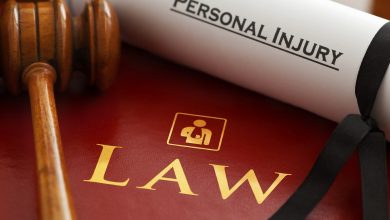Hiring an Employment Lawyer: When and Why

Very often, people violate state and federal employment laws. Some employers subject their employees to unfair and illegal conditions. Due to fear of retaliation, loss of benefits and wages, discrimination, and so on, most employees would rather not speak up. Others are simply unaware of what their employee rights are at the workplace.
Ultimately, employment lawyers seek to ensure that all employees, whether employed as a felon or not, receive consistent and fair treatment. They also ensure that employers act in compliance with all state and federal laws that govern the workplace.
Who Are Employment Lawyers?
Employment lawyers implement many strategies to make the working environment a safer place. They can enact these countermeasures in cases of illegal actions like wrongful termination, wage and hour violations, harassment, and other forms of employer oppression.
Where the need arises, an employment lawyer can stand in for employees or employers before the EEOC (Equal Employment Opportunity Commission). Here, they can handle various issues, including wage law and right disputes. Also, employment lawyers help with drafting and reviewing employee handbooks. They guide employees on their rights and work with them to prevent the violation of such rights.
Employee Unions
Employment unions uphold workers’ rights and privileges. They act as arbitrators between workers, employers, and the law. However, many employees do not belong to an employee union. They’re mostly powerless or at a disadvantage when their employers take illegal actions against them. As such, employment lawyers represent them.
When Should You Hire an Employment Lawyer as an Employee?
Many unscrupulous employers place their employees at a disadvantage through the unlawful actions they take against them. If you find yourself in such a situation, even as a felon, consider hiring the services of an employment attorney.
Some critical situations that require the help of an employment attorney include:
- Harassment
- Discrimination
- Retaliatory acts
- Wrongful or illegal termination
- Withheld benefits
- Being forced to sign an agreement that waives some rights that you’re entitled to
- If your employer has broken state or federal laws that protect you as an employee
Should any of these issues affect you at your place of work, contact an employment attorney quickly. If you delay, it may be difficult to prove the illegal conduct committed by your employer and recover damages.

When Should You Hire an Employment Lawyer as an Employer?
Employees aren’t the only ones that require the services of an employment lawyer. There are cases where employers also require the services of employment attorneys. Employment lawyers can assist employers with various employment and labor issues.
Employers need employment attorneys to interpret state and federal employment laws to them. They also guide employers so that they won’t fall out of line unintentionally. Therefore, they make sure that their clients comply with the state and federal laws that govern employment.
As an employer, you may need the help of an employment lawyer if:
- You need representation during collective bargaining negotiations
- You need to lay off or fire several of your employees
- You want to terminate employee benefits
- An employee has filed a harassment complaint against you
- An employee has petitioned a cause of action against you on employment-related issues
- You want to make a change to the current pension plan
- An employee has filed a complaint of discrimination against you
Besides employee-employer disputes, an experienced lawyer can assist you with other legal issues as well. For instance, an employment attorney can help you prepare and review contract agreements. These include releases, employment contracts, severance contracts, and more.
Everyday Tasks Performed by Employment Lawyers
Employment lawyers perform a range of tasks both for employers and employees. Some of the duties performed by employment attorneys include:
Interpretation of the Law
Employment attorneys help both employers and employees to have an adequate understanding of the state and federal employment laws. This way, employers are better guided when making bylaws for their companies.
Explanation of Rights
Clients who have employment disputes can ask an employment attorney to explain their rights to them. Here, the attorney explains each of the applicable laws that apply to their case. They’ll also highlight available options to the client. These options may include negotiation, litigation, mediation, or a range of other actions.
Additionally, an employment attorney may also highlight the pros and cons of each of the options. They can also offer counsel on how best to proceed with the case.
Filing Complaints
Most employment law issues involve filing a complaint with the Equal Employment Opportunity Commission (EEOC) or other relevant government agencies. Afterward, if need be, the client may pursue other courses of action. Employment lawyers help employees with filing such complaints with the appropriate agencies.
Compliance
For attorneys that represent the employer, one standard duty they perform is helping their clients to continue in compliance with state and federal employment laws. These include anti-discrimination laws and other government policies. They make sure that their clients do not discriminate based on race, age, religion, national origin, color, disability, sex, and more.
Also, employment lawyers help their employer-clients to learn about their various obligations regarding compliance with environmental regulations and OSHA guidelines. Additionally, employment attorneys can defend their clients before governmental boards and agencies.
Litigation
The services of employment attorneys are useful for employment-related lawsuits. Here, they represent employees filing lawsuits due to wrongful termination of contract, denial of benefits, discrimination, and wage and hour violations. They also defend their employer clients against these lawsuits.
Sometimes, employers also file lawsuits against their employees. Employers often take this action; they believe that an employee has violated confidentiality, non-compete, or other such agreements.
Legal Claims That Require the Assistance of Employment Lawyers
Employment Discrimination Lawsuits
This lawsuit may arise when an employee is demoted, reassigned, terminated, or not hired. Lawyers can also enact this lawsuit when an employee receives adverse employment action. Title VII of the Civil Rights Act 1964 disallows discrimination based on religion, color, sex, race, and national origin. The Americans with Disabilities Act bars discriminating against employees with disabilities. Similarly, the Age Discrimination Act prohibits the discrimination of employees from age 40 and older.
These laws have different processes, and each must be followed accordingly. They also apply to various employer categories as well. For instance, some rules are only applicable to employers with up to fifteen employees. In comparison, others relate to employers with more than twenty employees. There are also state laws that are more concise to cater to employees without adequate representations under the provisions of federal law.
Third-Party Lawsuits
An employee may issue a lawsuit against a third party other than the employer they work for directly. In some cases, it may be as a result of an injury acquired during work or something similar.
The employment attorney handling the case will help their client to prepare the complaints. They’re also responsible for establishing communication with the legal representative of the petitioned. Employment lawyers equally appear in court on behalf of their clients.
Employment Class Actions
Employees may initiate a class action when they’re similarly affected by an adverse action carried out by an employer. Actions such as wage and hour violations, discrimination, and harassment are common causes for a class action.
Class actions usually involve multiple plaintiffs. One advantage the employees have here is the leverage of splitting the cost of litigation between party members.
Union Disputes
Employment attorneys can offer advice to employees concerning their right to form a union, as well as other entitlements. Similarly, they also advise employers concerning their rights and responsibilities to union workers.
Worker’s Compensation Claims
When an employee suffers an injury or falls ill due to work, they can file a compensation claim. Employment lawyers help employees with filing these claims or appeals. Similarly, they could represent the employer’s interest in issuing a denial.
How Much Does Hiring an Employment Lawyer Cost?
The cost of hiring employment lawyers can vary substantially depending on a range of factors. These can include the lawyer’s skills, qualifications, and the nature of your case.
Generally, however, most employment attorneys charge their clients based on either contingency fees, hourly rates, or flat fees.
Contingency Fees
A contingency fee plan means that the lawyer will only charge the client out of the proceeds of the court action after a favorable or successful ruling. Depending on the agreement between lawyer and client, the lawyer can receive a prearranged first installment. They’ll get the balance after a successful court ruling.
Hourly Rates
Most employment lawyers charge their clients according to a preset hourly rate. In California, for instance, the average hourly rate starts at $350 for smaller, less experienced law firms. Larger, more experienced law firms may charge around $450.
Flat Fees
For a less complicated employment-related case, an employment attorney can charge a flat fee.

Why Do I Need to Hire an Employment Lawyer?
As an employee, if you are a victim of employment-related injustice at your workplace, you should employ the services of an employment attorney. Similarly, as an employer, to ensure that you adhere strictly to state and federal employment laws, you need the services of an employment lawyer.
An employment lawyer will interpret and help you better understand your responsibilities as an employee or employer. Also, if legal disputes crop up, your employment attorney will represent your best interest and provide you with the best resolution available.
Frequently Asked Questions
What Do Labor and Employment Laws Cater to?
The labor and employment law covers a wide range of violations. The provisions of the law also cater to individuals that have been victims of:
- Harassment (e.g., hostile working environment, sexual harassment)
- Wrongful termination
- Americans with Disabilities Act claims
- Discrimination (e.g., disability, religion, race, age, national origin, color, harassment)
- Denial of leave
- Executive pay disputes
- Unfair labor practices (e.g., overtime, equal pay, tip pooling, denial of wages)
- Reemployment Rights Act (USERRA)
- Retaliation
- Misclassification
What Does the Law Consider as Employer Retaliation?
It’s illegal, and the law prohibits companies from punishing their employees for filing a lawsuit or complaint against their employer. When a company does this, it’s considered employer retaliation.
The law legally protects employees that file complaints or lawsuits against their employers. However, many employers still use other means to punish workers who file claims or lawsuits against them. Some of these less apparent practices include:
- Demoting the employee
- Reassigning the employee to a shift that will create work-family conflict
- Reducing the employee’s salary
- Excluding the worker from essential activities like training sessions
- Reassigning the worker to a less desirable office
What Are Lawful Examples of Workplace Harassment?
There are various instances of lawfully classifiable workplace harassment. The most common include subjection to threats, unwelcome sexual advances, offensive jokes, assaults, ridicule, slurs, physical or verbal conduct of a sexual nature, and more. These cases are classifiable under workplace harassment.
Just like workplace discrimination, workplace harassment creates an abusive and hostile working environment.
Some case examples of workplace harassment include:
- Making prejudicial statements concerning an employee’s sexual orientation
- Making unwelcoming comments concerning an employee’s body or appearance
- Making jokes or negative comments about the age of a worker of age 40 and above
- Making negative comments concerning a worker’s religious affiliations or beliefs
- Telling sexual or other vulgar jokes to a co-employee
- Telling prejudicial statements concerning a coworker’s birthplace
- Telling prejudicial statements concerning a coworker’s family heritage
- Using slurs or racial epithets
There are also cases where workplace harassment takes the form of quid pro quo. For example, a worker may be forced into sexual consent with the manager to maintain their employment or office in the company.

What Constitutes Wrongful Termination?
Many times, employees get fired illegally and unfairly. This act is known as wrongful dismissal, wrongful discharge, or wrongful termination.
Many scenarios can be legally classified under wrongful termination and brought before a lawsuit. Some of them include:
- Firing a whistleblower
- Firing a worker out of retaliation
- Firing an employee because they wouldn’t do an illegal task for their employer
- Discrimination
If you’ve been relieved of your job without due cause, you can hire the services of a labor and employment attorney. They can help you recover your due compensation, including unpaid wages, back pay, and so on.
What Are the Most Common Methods of Workplace Discrimination?
Discriminating against an employee or a job applicant based on their religion, race, sex, color, age, disability, or national origin is illegal. However, many employers do this, and it results in an inequitable and hostile working environment. Some employers also discriminate against ex-offenders whose criminal pasts are unrelated to their current jobs. As a result, some workers receive more favorable treatment than their colleagues.
Many scenarios can be legally classified under workplace discrimination. Some common examples include:
- Not providing equal opportunities for the training of your employees of different religious affiliations
- Refusing to hire a qualified applicant based on their color
- Firing an employee based on a protected category
- Favoring the promotion of a less qualified male employee over a more qualified female employee
- Imposing criteria for job eligibility that deliberately disqualifies disabled people
What Is Employee Misclassification?
Independent contractors or consultants (self-employed workers) are different from employees in some ways. Employees are guaranteed a fixed wage amount, told when and where to work, and entitled to employee benefits, among other things. Independent contractors, on the other hand, generally work on a short-term, contract basis with a company. They receive an invoice for their work. Also, they aren’t entitled to any employer benefits and can file/withhold their taxes individually.
Unfortunately, however, some employers wrongfully misclassify bonafide employees as contractors. Many of them do this to evade laws and also save money illegally. This practice happens mainly with ‘gig-based jobs.’ Frequent victims include delivery drivers and rideshare drivers.
Some case examples of employee misclassification include:
- Misclassifying employees to evade minimum wage payments
- Misclassifying an employee as an independent or self-employed contractor to avoid complying with EEOC laws that prevent employment discrimination
- Misclassifying an employee in order not to enroll them in a health benefits scheme
How Does the Defamation of Character Apply at the Workplace?
Character defamation at the workplace is the act of damaging the reputation of an employee through libelous (written) or slanderous (spoken) comments. When this happens in the workplace, it creates alienation and reduces team morale. It can even cause more long-term damages to an employee’s career prospects.
Employers are accountable for making sure that the workplace is free from harmful gossips amongst employees.
Some example cases of character defamation in the workplace include:
- A worker spreading gossip concerning a coworker that causes other employees to avoid them
- An employer laying damaging and unfounded allegations, like incompetence or theft, against an employee during performance reviews.



